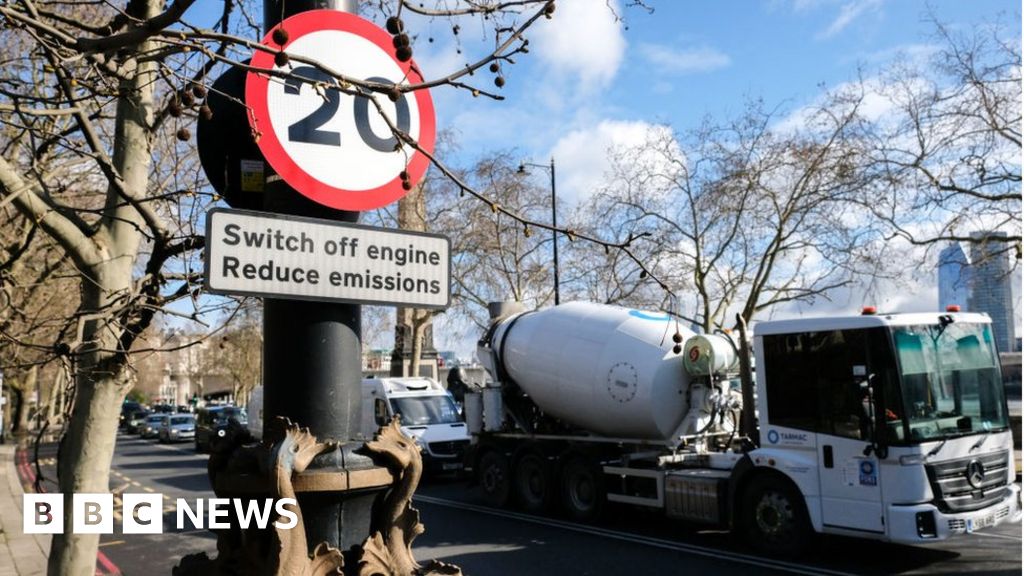It is a positive.
“You don’t have the infrastructure for driving very quickly.”
Good! My city is cut into islands by huge roads that are very difficult to cross. London is very walkable, as it should be. And its public transport is so good*, most people don’t need a car anyway.
*because London gets so much more investment than the wasteland that is the rest of the UK. We only exist to give the illusion that we’re a country and not a tax haven based on a massive casino.
The biggest problem of London is the massive sprawl of low-density housing that is Zone 3 and outwards to the M25, which is why the city has so much polution that it used to keep on breaking the EU polution limits way more times per year than allowed back when the UK was still in the EU.
However, that structural problem (which dates back to the post-War period and is hard to solve) aside, it’s very well served in terms of public transportation and has become cycling friendly over the years (not as much in terms of having a great infrastructure for it but more because as more and more people did it drivers became more and more used to it and infrastructure started taking it into consideration, so it became safer and more convenient).
It’s not quite Berlin or pretty much any Dutch city, but for a city with 10 million people (if you count the whole Greater London Area) it’s pretty decent.
London gets extra like New York gets extra. Both are huge, both are wealthy, both are stupidly expensive to live in, both are walkable
It points at a less positive effect though. London has had a pretty well functioning subway for more than a hundred years. They’ve had double decker busses, taxis and a walkable layout, since always. And yet, people choose to drive in individual cars.
I could sort of understand it if everyone else were on the public transport or on foot, so the roads were vacant and easy to drive, but no, these some of the most congested roads in the world and everyone who drives there fucking hate it. But they still do it.
Yes sure, London is big and has a large population, but it’s not even close to having the most citizens or highest population density.
This leaves very little hope for fixing car dependency only by offering better alternatives. They already have better alternatives. It’s the culture/dream of car ownership that needs to be addressed, because apparently people will attempt to cram their cars into every little space there is.
The only fix I can think of is to literally remove the roads.
You can keep that car centric culture stiffled by continuing to slow cars down, reduce parking, and study what could make the alternatives more effective. If london is already built at a human scale, the worst option is bulldozing it to car scale.
Pedestrian zones/streets is a good option. It makes no sense to have a road where only very few cars can pass every hour due to congestion anyway. Everyone is better off without those roads. Even in a non-particular-fuckcars way, it would make sense to turn entire roads into pedestrian zones with just the ends functioning as short time parking or cargo load zones, so nobody is fooled into believing that they can actually drive a car through.
The thing about London is we don’t actually like other people. I use tube, bus, bike or walk, but I hate using the bus, we get a lot of antisocial people, whether it’s the random ranter, the drunk, the person who practically sits on you, the one who feels the need to shout on their phone, the one playing music out loud, the one trying to pick a fight with everyone. That’s not to mention the molesters. Even though I’ll never get a car (through choice), I totally understand why people would choose to drive, especially women.
I only have to make one return trip by public transport a week for my food shop, as I cycle to work, but I used to take the tube in my last job, and when finishing at rush hour, it was awful. I’d have to wait for about 5 trains to go by before I could get on one, and then I’d have my face in someone else’s pit and once had a guy use the crowd as an excuse to grab my bum. Also had a man fall asleep on me, just gross. Public transport can be a horrible experience in London.
Well car culture is because cars are better, from an individual person’s standpoint. You have a few cubic feet of private space, just for you and no one else. Its safety and security and comfort. Sure its slow sometimes, but cars simply feel better.
If it were up to me, I’d make a non-idiotic version of the Peel P50, a single person electric go-kart, fully enclosed, with AC and heat. Limit it to 25 mph or something, and limit it to crowded urban areas. The details can be figured out later, but thats the jist.
Japan has Kei cars, this would be a smaller version of that.
Speaking of small vehicles, I’ve noticed more people using electric scooters. Stand up scooters that is, not mobility scooters. Even old people. This is in Denmark where there’s bicycle paths everywhere. These people wouldn’t ride a bike, but the scooter seems to be a decent alternative for the same (city) distances. The legal framework isn’t really in place so they ride them on the bicycle path but also the pavements. Weather is a big issue for those.
However, cabin scooters also seem to be popular. I’ve always associated those with old handicapped people, but it seems that the younger generation don’t care about that. It’s a license thing, they don’t require a drivers license here. I’m not sure if those actually help on congestion, but at least they do take up less space and use electricity instead of fossil fuels.
Anyway. It’s difficult to use alternative vehicles if there’s no space for them on the road. The bicycle path sort of helps (as long as it’s legal).
Is this study just using the posted speed limits and a journey planner, as a way to complain about 20mph limits in one part of London? Speed limits aren’t really a good measure of travel time by car in a city (not that that’s a good thing to optimise for, as already mentioned)
I don’t understand why they switch between units. Why would a sign there be in MPH when they’ve historically used KPH?
Our road signs display speed limits in mph, and distance in miles. Always have done.
KPH in Europe.
Thank you for the clarification. I guess I assumed because we are KPH in Canada you guys were too. TV probably didn’t help.
It might help if England didn’t have roundabouts inside roundabouts.
Also their traffic throughput would be greater if they invested in giant stack interchanges.



